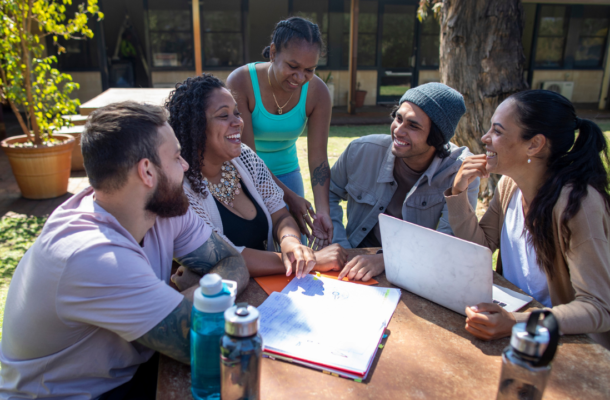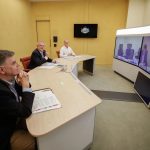People, get ready

A new online platform aims to better prepare communities for disasters with the use of community sourced data, resource mapping and artificial intelligence (AI) tools.
A detailed report, Towards Resilient Communities, provides details on the platform developed by researchers at the ARC Centre of Excellence for Automated Decision-Making and Society (ADM+S) at Swinburne University in partnership with Humanitech at the Australian Red Cross.
Prof Anthony McCosker, Chief Investigator at the ADM+S at Swinburne University and lead author of the report said,
“When disasters occur in Australia, particularly in remote areas, one of the biggest issues is access to reliable and useful information.”
“Post disaster reviews consistently tell us that local residents and community organisations need to be involved in generating that information and supported to access it with better tools and platforms. For us this is about building community data capability – or the skills and tools needed to support local decision-making”
“The community resource mapping approach aims to achieve a step-change in disaster preparedness by embedding data-gathering and capability development in the community context as it evolves.”
Government reports and disaster management inquiries have consistently found that data and information are vital to disaster resilience and that this is not only the domain of emergency services but community members themselves can actively contribute.
Katy Southall Head of Humanitech at Australian Red Cross said in today’s rapidly evolving landscape of disaster preparedness, collaboration between research, technology, and humanitarian efforts is vital.
“By harnessing community-sourced data, resource mapping, and AI tools, we can further empower communities by adding innovative tools to their preparedness toolkit.
“This platform not only fills gaps in access to information but also ensures we’re putting communities first by ensuring local voices and knowledge are central to the process,” said Ms Southall.
Informal local sources of information and knowledge have been vital to emergency responses in rural and isolated small communities prone to bushfires, flooding, heat and storm damage.
Their importance was evident in the response to bushfires across southern New South Wales and Victoria in 2019–2020 and during the 2022 floods in Queensland and Lismore. Residents of Lismore themselves identified social media posts from people seeking help as waters rose with collated addresses made available through a public Google spreadsheet. This information was used to coordinate local rescuers and resources such as boats, emergency accommodation and
The online platform was trialled for Ararat in regional Victoria in late 2023, which includes areas of the Grampians damaged in recent bushfires. With the first stage bringing together relevant data about local organisations, amenities, and infrastructure that will help inform decision-making before, during and after a disaster event.
Rather than producing more data about communities, the platform emphasises generating and mapping resources data with and within communities as an ongoing and iterative mode of resilience building and preparedness action.
While there is a long way to go to embed the work with specific communities, the model offers an approach to building context-responsive capabilities for resource mapping that puts local communities first.
Read the report Towards Resilient Communities: Data capability and resource mapping for disaster preparedness.
Open Forum is a policy discussion website produced by Global Access Partners – Australia’s Institute for Active Policy. We welcome contributions and invite you to submit a blog to the editor and follow us on Twitter, Facebook, Linkedin and Mastadon.











